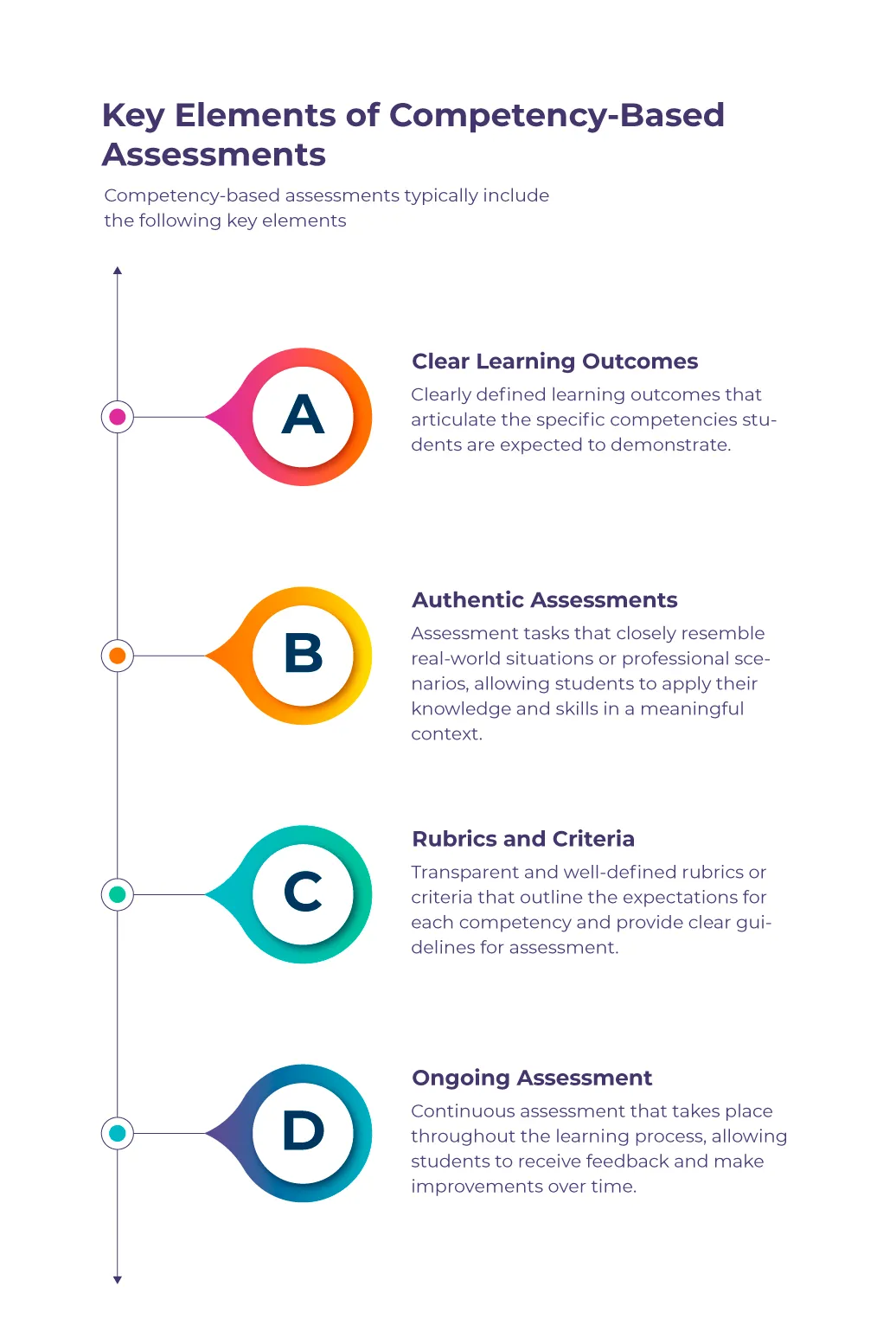
Introduction:
Traditional assessment methods have often focused on testing students' knowledge of content rather than their practical skills and abilities. However, in today's rapidly changing world, there is a growing recognition of the importance of assessing competencies and skills that are relevant and applicable to real-life situations. Competency-based assessments provide a holistic approach to evaluating learning by focusing on the demonstration of specific skills, knowledge, and behaviors. In this blog, we will explore the concept of competency-based assessments and their benefits in fostering meaningful and comprehensive evaluations of student learning.

Competencies are a combination of knowledge, skills, abilities, and behaviors that individuals acquire and apply to perform tasks or activities effectively. Unlike traditional assessments that solely measure content knowledge, competency-based assessments evaluate how well students can apply their knowledge in practical contexts and demonstrate specific skills relevant to a particular field or profession.
Shifting Focus to Skill Demonstration:
Competency-based assessments shift the focus from rote memorization to skill demonstration. Instead of relying solely on written exams, students are assessed through performance-based tasks, projects, simulations, and real-world applications. These assessments require students to apply their knowledge, think critically, problem-solve, communicate effectively, collaborate, and demonstrate other relevant skills.
Key Elements of Competency-Based Assessments:
Competency-based assessments typically include the following key elements:
Clear Learning Outcomes: Clearly defined learning outcomes that articulate the specific competencies students are expected to demonstrate.
Authentic Assessments: Assessment tasks that closely resemble real-world situations or professional scenarios, allowing students to apply their knowledge and skills in a meaningful context.
Rubrics and Criteria: Transparent and well-defined rubrics or criteria that outline the expectations for each competency and provide clear guidelines for assessment.
Ongoing Assessment: Continuous assessment that takes place throughout the learning process, allowing students to receive feedback and make improvements over time.
Benefits of Competency-Based Assessments:
Competency-based assessments offer several benefits over traditional assessment methods:
Real-World Relevance: By focusing on practical skills and abilities, competency-based assessments ensure that students are prepared for real-life situations and future careers.
Individualized Learning: These assessments provide insights into students' specific strengths and areas for improvement, allowing for personalized and targeted instruction.
Higher Order Thinking: Competency-based assessments encourage critical thinking, problem-solving, and the application of knowledge in complex situations.
Meaningful Feedback: Ongoing assessment and feedback in competency-based assessments enable students to understand their progress, identify areas for growth, and make necessary adjustments.
Skill Development: By emphasizing skills and competencies, these assessments promote the development of transferrable skills that are highly valued in the workforce.
Implementing Competency-Based Assessments:
To implement competency-based assessments effectively, educators should:
Align assessments with clear and measurable learning outcomes.
Design authentic assessment tasks that mirror real-world scenarios.
Develop comprehensive rubrics or scoring guides to evaluate the demonstration of competencies.
Provide ongoing feedback and opportunities for students to reflect on their learning and set goals for improvement.
Conclusion:
Competency-based assessments offer a more comprehensive and relevant approach to evaluating student learning. By shifting the focus to skill demonstration, these assessments provide students with opportunities to apply their knowledge, develop practical skills, and prepare for real-world challenges. With their emphasis on individualized learning, higher-order thinking, meaningful feedback, and skill development, competency-based assessments pave the way for a more holistic and effective educational experience that prepares students for success in their future endeavors.